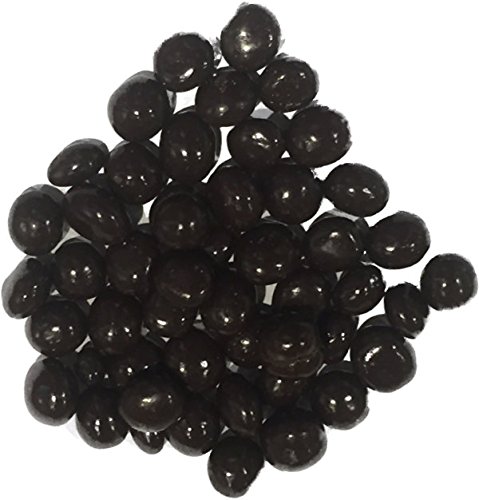The Reasons Coffee Bean Is More Tougher Than You Think
페이지 정보

본문
 What Are Coffee Beans?
What Are Coffee Beans? The coffee beans you use to brew are actually the seeds of a fruit called a coffee cherry. The cheap coffee beans plant is a perennial, meaning it comes back year after year.
The coffee beans you use to brew are actually the seeds of a fruit called a coffee cherry. The cheap coffee beans plant is a perennial, meaning it comes back year after year.Coffee beans have high levels of certain compounds - such as caffeine, and should be consumed in moderation. Find out more about this well-known seed!
Origin
Coffee is a drink made from the seeds that have been roasted (beans) of the Barista Coffee Beans plant. Beans are a well-known and profitable international commodity. Coffee plants are woody evergreen plants that thrive in the tropical regions. The Bean Belt includes the areas surrounding the Tropic of Cancer, and the Tropic of Capricorn.
The most popular legend of coffee's history starts with the goat herder Kaldi in Ethiopia. He noticed that his herd became especially active after eating the bright red berries of certain coffee plants. Kaldi shared this discovery with an abbot at a nearby monastery, who made drinks with the berries. From there, the energy-boosting effect of the berries grew.
Currently, coffee beans are produced by two major varieties of Coffea plants: Arabica and Robusta. Robusta is most commonly found in Africa and Indonesia and is generally less expensive than arabica. There are many smaller varieties that are a mix of robusta and arabica. They are known as Peaberries and have a more delicious taste than regular beans.
During the roasting process, beans lose their moisture which can result in them becoming bitter and stale. It is important to only utilize fresh, high-good quality coffee beans beans for your coffee.
Flavor
The four components of flavor- acidity, bitterness, sweetness, and saltinessare influenced by bean type, climate, and the method of processing. The amount of these components can result in a variety of flavor profiles ranging from sweet and fruity to nutty, or even smoky.
When coffee beans are exposed to heat, they react with amino acids within the seeds, resulting in hundreds of aromatic compounds that affect the flavor profile of coffee beans. This reaction is referred to as the Maillard Reaction, and it occurs in virtually all cooking. The smell of beans that are roasted reflect these compounds.
While the Maillard Reaction affects the overall flavor of roasts, nonvolatile and volatile compounds can also affect the taste of coffee. The taste of a fresh or unroasted bean could be earthy fruity, floral or even chocolaty. Bitterness is often associated with full-bodied roasts containing more caffeine. However, it can also be caused by poor preparation or storage.
Flavored cafe coffee beans beans are coated with flavor oils that help preserve the beans, while also adding a specific aroma and taste. These oils that are flavored can be a mixture of chemicals and natural flavors, including vanilla, cinnamon and chocolate. The flavors are bonded to the beans by an organic compound known as polyphenol.
Health Benefits
Coffee beans are a rich source of a variety of nutrients that promote health including magnesium, potassium, and B vitamins. They also are a great source of antioxidants that help to prevent the effects of oxidative stress (which can lead to chronic diseases such as atherosclerosis and cancer). The antioxidant chlorogenic acid found in coffee beans is particularly beneficial against obesity-related diseases, like the high cholesterol level and diabetes.
Coffee is also an excellent natural energy booster which makes people feel more energetic and alert. Caffeine increases neurochemicals, which enhances alertness, memory and cognitive performance. It also helps control blood sugar levels. Studies have found that drinking moderate amounts of coffee may help lower the risk of Parkinson's disease and dementia, and also improve mood, satisfaction as well as energy and concentration.
Anti-ageing: The antioxidants in coffee (including chlorogenic acids and caffeine) act as an natural moisturizer for the skin, increasing cell turnover and reduce the appearance of wrinkles and fine lines. They also possess UV-protection properties blocking light and preventing sun-induced damage to the skin.
Anti-depressant Coffee beans are a natural anti-depressant. They increase serotonin levels as well as dopamine levels in the brain, thereby increasing the levels of happy hormones. It also helps reduce pain and inflammation, acting as a natural painkiller, and improving the effectiveness of prescription painkillers. It also contains cafestol and Kahweol, two diterpene ester with lipolytic properties in the adipose tissue, thereby helping to fight cellulite.
Caffeine
Coffee is a popular drink around the world. It is now an integral part of many people's morning routines. Coffee beans are the seeds of the coffee plant or coffee cherry. They contain caffeine, which is a natural stimulant. The amount of caffeine in coffee can differ based on how it is roasted or prepared, as well as the method of brewing it. But, there are basic rules about the amount of caffeine present in each coffee bean that will help you make smart choices when choosing your coffee.
The average coffee beans uk bean contains approximately 2 milligrams of caffeine per bean, but the exact amount will vary according to the size of the bean and the degree of roasting it has been. It is a common myth that coffee beans roasted in darker roasts contain more caffeine than lighter roasted ones. This isn't the case. Dark medium roast coffee beans coffee beans will have less caffeine than light roasts due to their smaller density. However, the amount of caffeine is the same.
The daily limit recommended for caffeine is 400 milligrams. A typical cup of coffee is 95 milligrams. If you are not sensitive to caffeine, staying within this range will not cause any adverse effects. Those who are not sensitive to caffeine can still enjoy their coffee, however it's important to be aware of how much caffeine you're taking in and to avoid overdoing it.
- 이전글Life After Poker Stakes 24.12.08
- 다음글When Poker Stakes Businesses Grow Too Quickly 24.12.08
댓글목록
등록된 댓글이 없습니다.